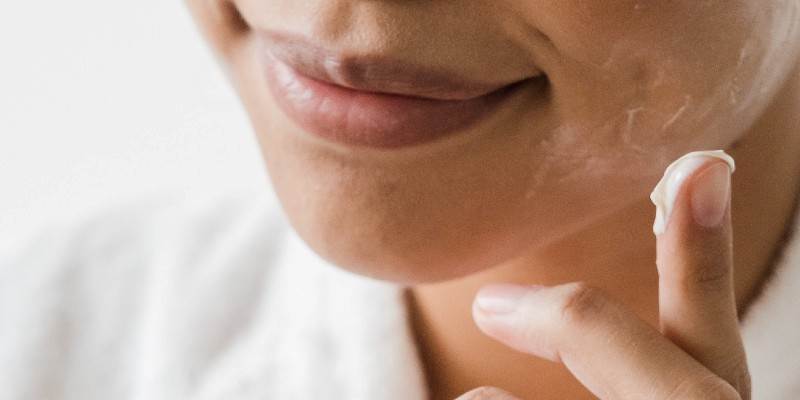11/07/2024

When we talk about blemished skin, most of us imagine a complexion full of red bumps with whiteheads, but acne can manifest itself in a variety of ways—and many other skin problems can initially remind us of the more common pimples.
Although acne is a growing problem among adults, most people are still unsure of exactly what they have, and opt for self-treatment options for the problem, which makes acne treatment and prevention usually drag on for months and frustrating, if not impossible.
However, with some clear boundaries on how to take care of yourself when you have problematic skin - acne can also be put in order.
Why do acne appear?
- Excess sebum - due to external or internal stresses, the glands can secrete more sebum than necessary, leading to clogged pores
- Hormones - hormone fluctuations are one of the most common causes of acne, and the most common problem is sex hormones.
- Accumulations of dead skin cells - not only sebum is responsible for clogging pores, but also accumulations of dead skin cells, if the skin is not exfoliated regularly
- Diet – While food doesn’t directly affect acne formation, it does affect changes in the body that can cause acne-prone skin to break out. For example, foods with a high glycemic index, such as sugar and white bread, have been shown to be problematic for blemish-prone skin.
- Improper care - although acne is usually more than the use of poor-quality makeup, improper facial cleansing or a missed care routine, we must not exclude that option from the group either. If we have sensitive facial skin - or we are prone to clogging - products that are too aggressive or those that are richer in nutrients can cause irritation and even acne.

6 tips for caring for problem skin
A good daily skincare routine is important for everyone, but especially if you're prone to blemishes. With these 5 steps, your skin will be healthier and happier, and with fewer breakouts!
1. CleaningCleansing your face is extremely important because it removes dirt and excess oil – but over-cleansing can further irritate your skin. For this reason, it is recommended to start your morning routine with a wash, and use a facial cleanser at night . If you wake up very oily, then it is okay to wash your face with a hydrating product, for example L'ADRIA Hydrating cleanser, which will cleanse your skin nicely but leave it hydrated.

Exfoliation is a key step in any skincare routine and can be especially beneficial for problematic skin. Exfoliation deeply cleanses pores, which helps reduce clogging and the likelihood of breakouts .
Chemical peels are more suitable for problematic skin because they are gentler on an already inflamed face, and can also cleanse pores better, especially if they contain salicylic acid. A good option is to use a cleanser with salicylic acid because it will also perform a light exfoliation while washing your face - like L'ADRIA Purifying cleanser.

3. Facial care
Many people with oily skin don't believe in using face creams because their past experiences have shown them that creams can clog pores. While this is true, moisturizing and nourishing the surface layer of the skin is extremely important – and no other product can do that like a cream.
Choose a non-greasy cream as it will not encourage breakouts and will provide all the hydration benefits that problematic skin needs. L'ADRIA Harmonizing cream is great because it also contains ingredients that have anti-inflammatory effects, reduce the appearance of pimples and blemishes along with deep hydration.
4. Sun protectionThis step is just as important as cleansing your face! Namely, exposure to UV rays can increase inflammation, thereby worsening the appearance of acne, in addition to aging the skin quickly.
Also, most products that act quickly and directly on the cause of acne - are not suitable for use in the sun because they are sun-sensitive or because they thin the skin. That's why quality protection of 30+ should become part of your morning routine - especially in spring and summer!
5. Anti-acne productsWhen you have problematic skin, it's likely that you'll need to make a lot of adjustments to your skin care routine and be extremely persistent to see satisfactory results.
Anti-acne products are a key part of your skincare routine, which must match and complement the rest of your products.
Also, some acne will require medication or antibiotics, which is completely normal - but we suggest that you do not treat acne yourself, but rather consult a dermatologist from the beginning.
6. Lifestyle changeAn extremely important step that we often neglect is adjusting our lifestyle to the problem we have. A common cause of acne, in addition to hormonal fluctuations, can also be poor intestinal microflora and a generally slow metabolism.
In order for your body to function better, and in turn, feel better, it is suggested that you introduce small healthy habits, which will then show benefits in the appearance of your skin.
For example, exercise at least three times a week, watch your alcohol and sugar intake, drink more water... In addition, change your pillowcase regularly, throw away your towel, be careful what and how you touch your face when you may not have clean hands.
Sometimes even in the most banal life habit you can find a solution to fewer breakouts!






